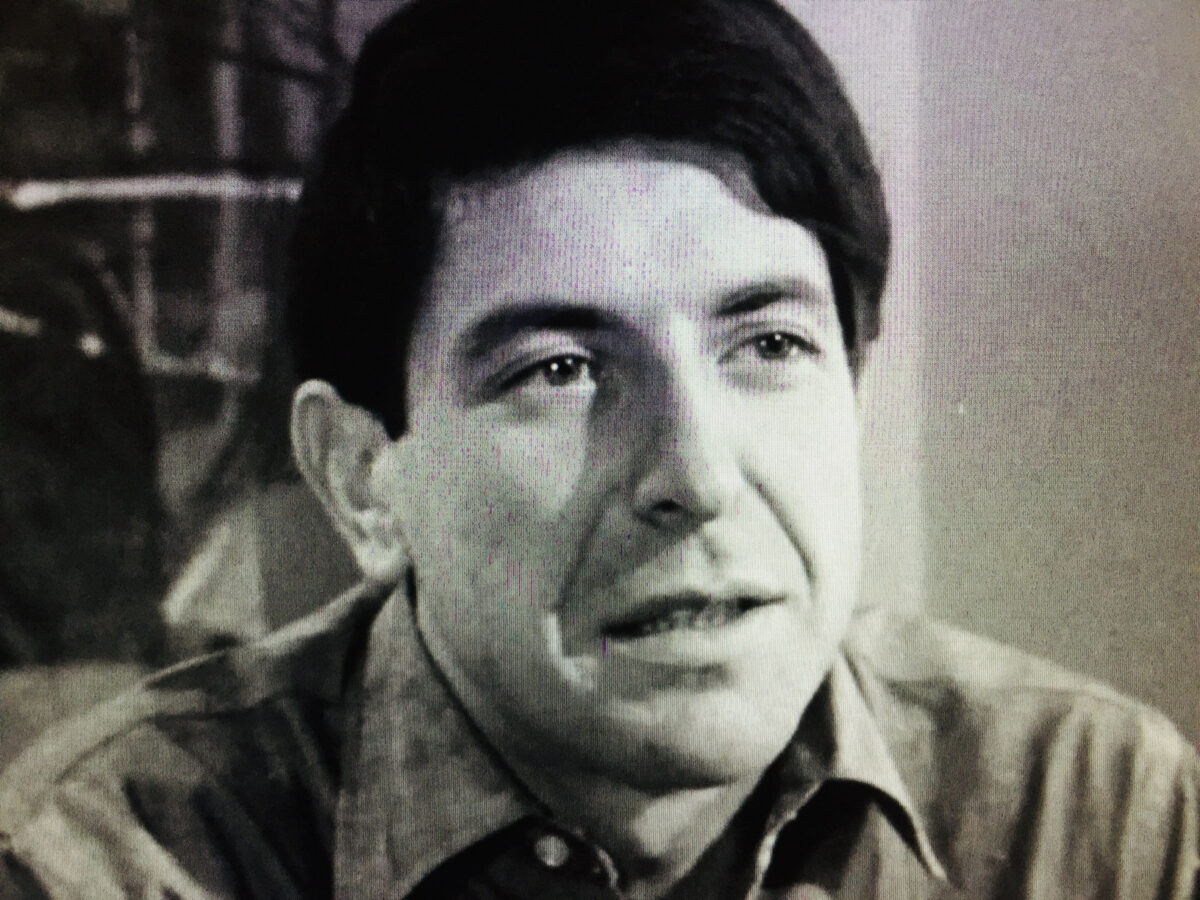Leonard Cohen, the acclaimed Canadian poet and novelist, was only 30 when Donald Brittain and Don Owen of the National Film Board of Canada decided he was worthy of a biopic. Ladies and Gentlemen …. Mr. Leonard Cohen was released in 1965, and in honor of Canadian Jewish Heritage Month, this spare and affecting 44-minute black-and-white documentary will be broadcast online during May.
The filmmakers describe Cohen as a “singular talent” and a “confident young man” who seemed destined for literary greatness. By 1964, he had published three volumes of poetry — Let us Compare Mythologies, The Spice Box of Earth and Flowers for Hitler — and one novel, The Favorite Game.
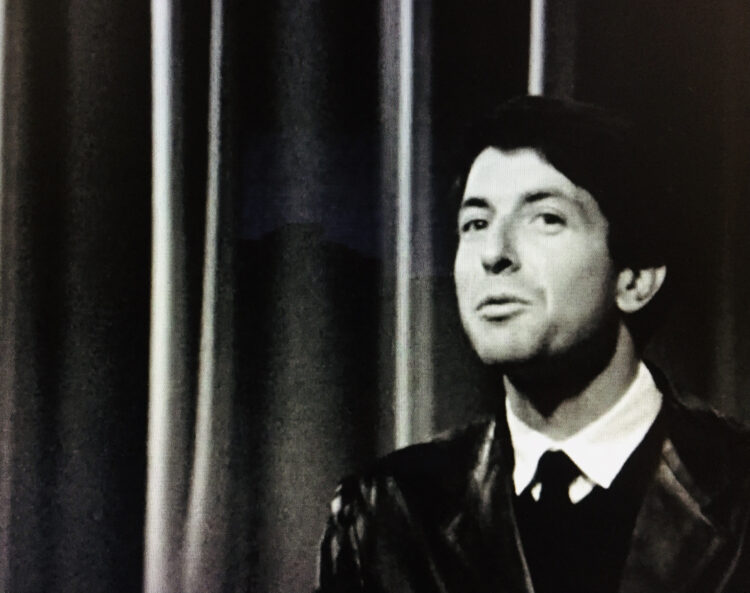
The film opens in Montreal, Cohen’s hometown, as he speaks to an appreciative audience in a jocular, self-deprecating and deadpan style.
As we’re told by the narrator, Cohen lives on the Greek island of Hydra for most of the time and visits Canada once or twice a year to renew his ties with his family and Montreal. He was not born into this bohemian life, but to a well-to-do Jewish family in the clothing business. His grandfather, however, was a writer.
When Cohen returns to Montreal, he checks into a $3-a-night hotel room in the tenderloin district, which was then located around the intersection of St. Catherine Street and St. Lawrence Boulevard.
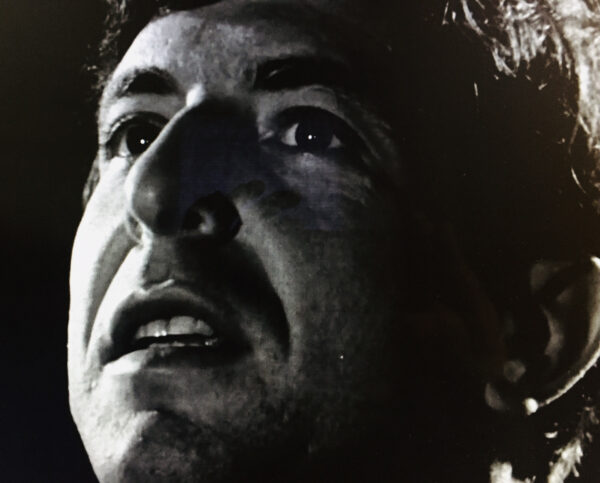
When he awakes in the morning, he tries to ascertain whether he’s in a “state of grace.” On a television show, Pierre Berton, a Canadian journalist, asks Cohen to define the expression, but he can’t put his finger on it. Cohen’s mentor, the poet Irving Layton, jumps into the discussion and deftly defines it.
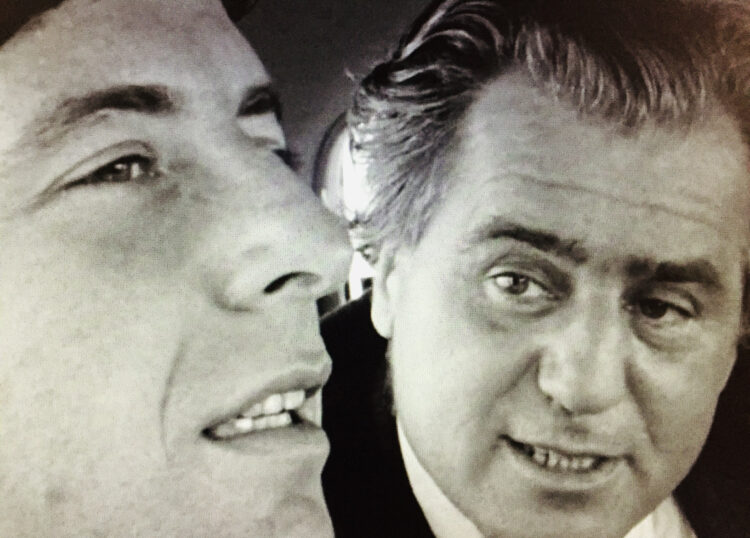
Before he begins reading excerpts from The Spice Box of Earth, a producer filming his presentation advises Cohen that “dirty words” will be deleted. There will be none, he says nonchalantly.
Cohen, who finds nourishment in both crowds and solitude, comes across as an affable, good-natured person with the face of “a curious little boy.”
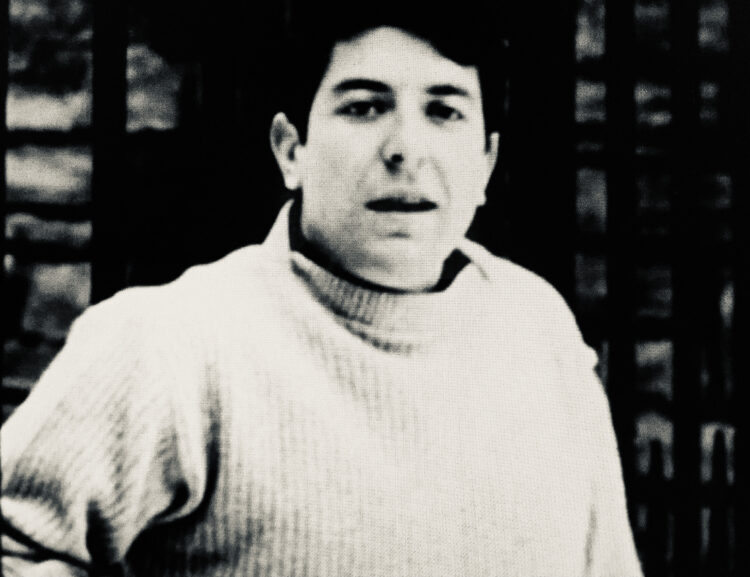
Living on an inheritance of $750 a year, which seems miserly even for the mid-1960s, Cohen has of late improved his financial status. He earned a whopping $17,000 in 1964.
He moved to Greece in 1961 after spending a miserable winter in London. He lives with Marianne Ihlen, a Norwegian with whom he would have a lengthy relationship. She died in 2016, the same year as Cohen.
He writes and rewrites about five hours a day. He thinks he’s becoming an important writer and a voice of his generation, yet he exhibits no arrogance and despises literary pretence.
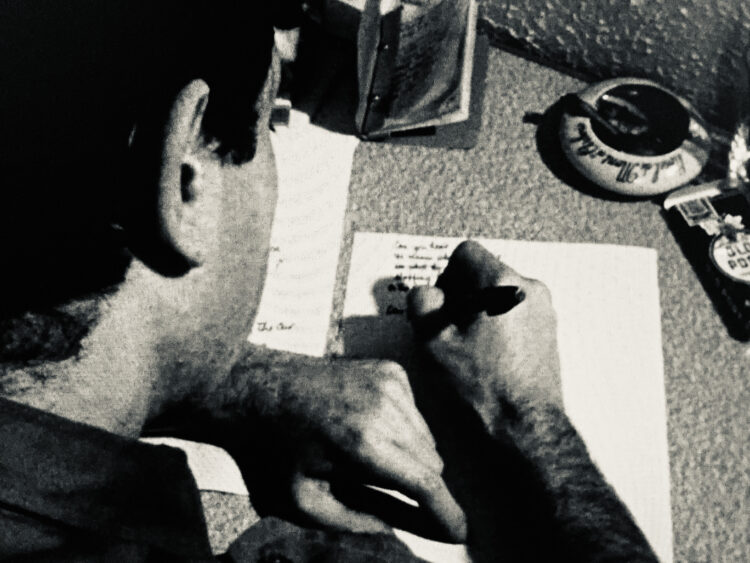
A McGill University graduate who dropped out of law school, he variously describes himself as a “ghetto Jew” and a “Dachau Jew.” These are virtually the only references in the film to his Jewish background.
A constant wanderer, Cohen walks the streets of downtown Montreal, jotting observations in his notebook. One night, he walks into Ben’s Delicatessen, one of his favorite restaurants, and an elderly man greets him. They sit down at a table and Cohen, a radiant look in his eyes, launches into an animated conversation.
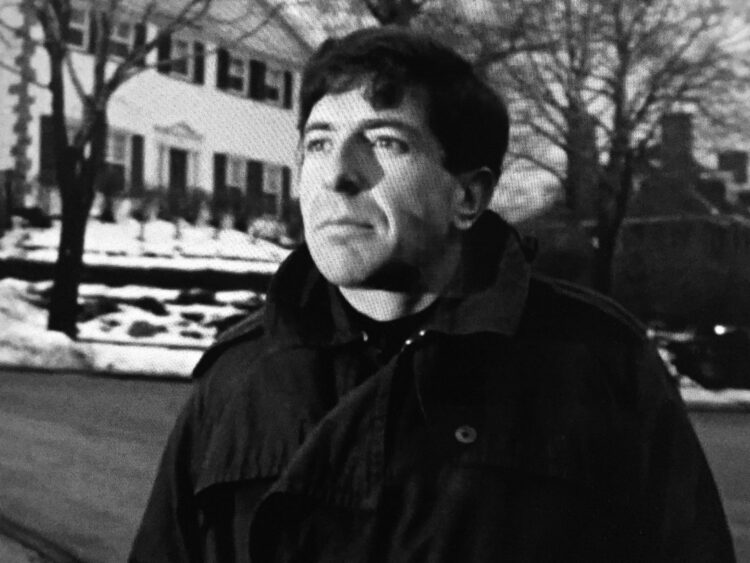
Cohen’s sojourn in Montreal has run out and now he’s going back to Greece and Marianne, for whom he will write an iconic love song after he transforms himself into a celebrated songwriter and singer.
As this celluloid ode to a renowned Canadian reaches its denouement, Brittain and Owen predict that “dreams of glory” await Cohen in the future. Fifty six years on, one may say that their excursion into crystal ball gazing was right on the mark.
